![New York Archdiocese says longtime insurer waged ‘shadow campaign,’ posed as victims’ rights group #Catholic The Archdiocese of New York is arguing in state court that its longtime insurer has secretly been “waging a shadow campaign” and posing as a victims’ rights group in order to “undermine and weaken” the archdiocese amid an ongoing insurance dispute. In a Jan. 31 legal filing at the New York State Supreme Court obtained by EWTN News, the archdiocese said that Chubb Insurance — which the archdiocese sued in 2024 over an alleged failure to pay out financial claims for sex abuse victims — has for several years been “secretly” posing as the “Church Accountability Project,” allegedly encouraging abuse victims to “pursue claims against the [archdiocese].”The archdiocesan filing said the insurer has secretly run the website in order to “elevate Chubb’s own financial interests” and improve its leverage in the ongoing lawsuit. As of Feb. 4 the “Church Accountability Project” website prominently displays the Chubb logo at the top of its page. But archives of the website from around a year ago make no mention of the site’s alleged alignment with Chubb.“The Archdiocese of New York tolerated and covered up horrific sexual abuse against children for decades,” the older, un-branded version of the website states. The project said it was “committed to holding the Archdiocese of New York accountable.” The current version of the website contains partly similar language.A Chubb spokesman on Feb. 4 described the filing as “the latest desperate tactic to delay justice and distract from the decades of horrific child sexual abuse the Archdiocese of New York enabled and concealed.”“It’s quite telling that the archdiocese is more outraged about the facts coming to light on a platform we created than they are about the abuses they condoned, concealed, and covered up,” the statement said. “The archdiocese is delaying payment to deserving victims and failing to provide insurers needed information.”In 2024 amid the newly filed lawsuit against the insurer, New York archbishop Cardinal Timothy Dolan told the faithful that Chubb was “attempting to evade their legal and moral contractual obligation to settle covered claims which would bring peace and healing to victim-survivors.”The insurer in turn argued that the archdiocese “tolerated, concealed, and covered up rampant child sexual abuse for decades, and despite having substantial financial resources, they still refuse to compensate their victims.”In its Jan. 31 filing the archdiocese requested punitive damages against Chubb. It described the alleged “Church Accountability Project” maneuver as “wanton sabotage” and “just the latest in an example of the depths to which Chubb is willing to stoop.” The rebranded “accountability” website, meanwhile, alleges that the archdiocese “repeatedly refused to share crucial details regarding what they knew and when” regarding child abuse. “The insurance purchased by the archdiocese is designed to cover accidents, not to compensate for deliberately concealing a pattern of abuse,” the website says. New York Archdiocese says longtime insurer waged ‘shadow campaign,’ posed as victims’ rights group #Catholic The Archdiocese of New York is arguing in state court that its longtime insurer has secretly been “waging a shadow campaign” and posing as a victims’ rights group in order to “undermine and weaken” the archdiocese amid an ongoing insurance dispute. In a Jan. 31 legal filing at the New York State Supreme Court obtained by EWTN News, the archdiocese said that Chubb Insurance — which the archdiocese sued in 2024 over an alleged failure to pay out financial claims for sex abuse victims — has for several years been “secretly” posing as the “Church Accountability Project,” allegedly encouraging abuse victims to “pursue claims against the [archdiocese].”The archdiocesan filing said the insurer has secretly run the website in order to “elevate Chubb’s own financial interests” and improve its leverage in the ongoing lawsuit. As of Feb. 4 the “Church Accountability Project” website prominently displays the Chubb logo at the top of its page. But archives of the website from around a year ago make no mention of the site’s alleged alignment with Chubb.“The Archdiocese of New York tolerated and covered up horrific sexual abuse against children for decades,” the older, un-branded version of the website states. The project said it was “committed to holding the Archdiocese of New York accountable.” The current version of the website contains partly similar language.A Chubb spokesman on Feb. 4 described the filing as “the latest desperate tactic to delay justice and distract from the decades of horrific child sexual abuse the Archdiocese of New York enabled and concealed.”“It’s quite telling that the archdiocese is more outraged about the facts coming to light on a platform we created than they are about the abuses they condoned, concealed, and covered up,” the statement said. “The archdiocese is delaying payment to deserving victims and failing to provide insurers needed information.”In 2024 amid the newly filed lawsuit against the insurer, New York archbishop Cardinal Timothy Dolan told the faithful that Chubb was “attempting to evade their legal and moral contractual obligation to settle covered claims which would bring peace and healing to victim-survivors.”The insurer in turn argued that the archdiocese “tolerated, concealed, and covered up rampant child sexual abuse for decades, and despite having substantial financial resources, they still refuse to compensate their victims.”In its Jan. 31 filing the archdiocese requested punitive damages against Chubb. It described the alleged “Church Accountability Project” maneuver as “wanton sabotage” and “just the latest in an example of the depths to which Chubb is willing to stoop.” The rebranded “accountability” website, meanwhile, alleges that the archdiocese “repeatedly refused to share crucial details regarding what they knew and when” regarding child abuse. “The insurance purchased by the archdiocese is designed to cover accidents, not to compensate for deliberately concealing a pattern of abuse,” the website says.](https://unitedyam.com/wp-content/uploads/2026/02/new-york-archdiocese-says-longtime-insurer-waged-shadow-campaign-posed-as-victims-rights-group-catholic-the-archdiocese-of-new-york-is-arguing-in-state-court-that-its-long.jpg)
The archdiocese alleged that Chubb Insurance posed as the “Church Accountability Project.”
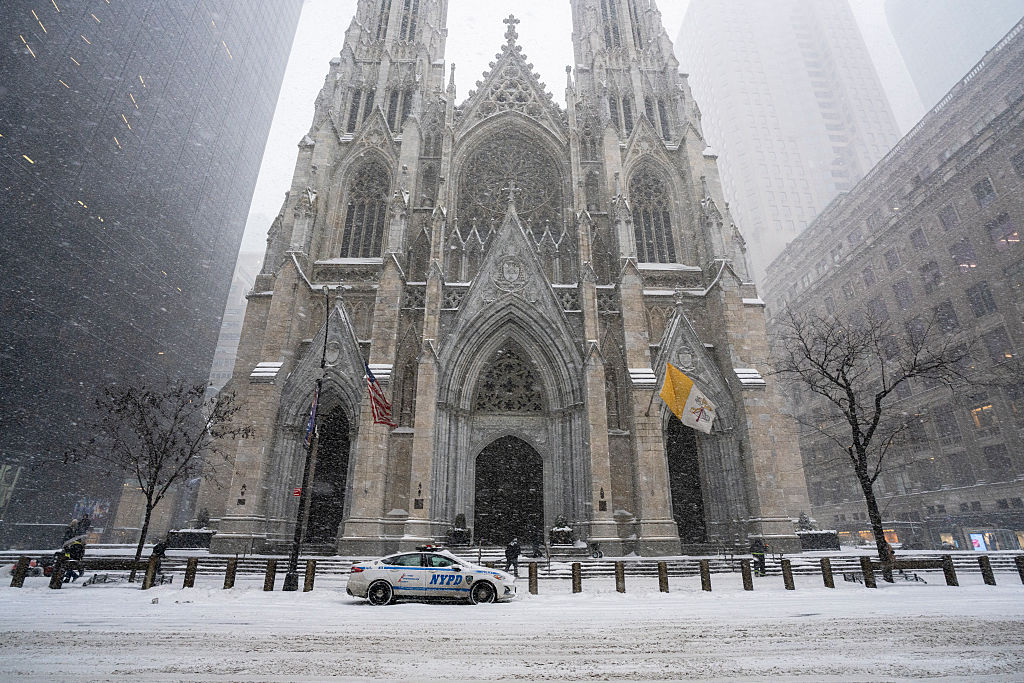
![New York Archdiocese says longtime insurer waged ‘shadow campaign,’ posed as victims’ rights group #Catholic The Archdiocese of New York is arguing in state court that its longtime insurer has secretly been “waging a shadow campaign” and posing as a victims’ rights group in order to “undermine and weaken” the archdiocese amid an ongoing insurance dispute. In a Jan. 31 legal filing at the New York State Supreme Court obtained by EWTN News, the archdiocese said that Chubb Insurance — which the archdiocese sued in 2024 over an alleged failure to pay out financial claims for sex abuse victims — has for several years been “secretly” posing as the “Church Accountability Project,” allegedly encouraging abuse victims to “pursue claims against the [archdiocese].”The archdiocesan filing said the insurer has secretly run the website in order to “elevate Chubb’s own financial interests” and improve its leverage in the ongoing lawsuit. As of Feb. 4 the “Church Accountability Project” website prominently displays the Chubb logo at the top of its page. But archives of the website from around a year ago make no mention of the site’s alleged alignment with Chubb.“The Archdiocese of New York tolerated and covered up horrific sexual abuse against children for decades,” the older, un-branded version of the website states. The project said it was “committed to holding the Archdiocese of New York accountable.” The current version of the website contains partly similar language.A Chubb spokesman on Feb. 4 described the filing as “the latest desperate tactic to delay justice and distract from the decades of horrific child sexual abuse the Archdiocese of New York enabled and concealed.”“It’s quite telling that the archdiocese is more outraged about the facts coming to light on a platform we created than they are about the abuses they condoned, concealed, and covered up,” the statement said. “The archdiocese is delaying payment to deserving victims and failing to provide insurers needed information.”In 2024 amid the newly filed lawsuit against the insurer, New York archbishop Cardinal Timothy Dolan told the faithful that Chubb was “attempting to evade their legal and moral contractual obligation to settle covered claims which would bring peace and healing to victim-survivors.”The insurer in turn argued that the archdiocese “tolerated, concealed, and covered up rampant child sexual abuse for decades, and despite having substantial financial resources, they still refuse to compensate their victims.”In its Jan. 31 filing the archdiocese requested punitive damages against Chubb. It described the alleged “Church Accountability Project” maneuver as “wanton sabotage” and “just the latest in an example of the depths to which Chubb is willing to stoop.” The rebranded “accountability” website, meanwhile, alleges that the archdiocese “repeatedly refused to share crucial details regarding what they knew and when” regarding child abuse. “The insurance purchased by the archdiocese is designed to cover accidents, not to compensate for deliberately concealing a pattern of abuse,” the website says. New York Archdiocese says longtime insurer waged ‘shadow campaign,’ posed as victims’ rights group #Catholic The Archdiocese of New York is arguing in state court that its longtime insurer has secretly been “waging a shadow campaign” and posing as a victims’ rights group in order to “undermine and weaken” the archdiocese amid an ongoing insurance dispute. In a Jan. 31 legal filing at the New York State Supreme Court obtained by EWTN News, the archdiocese said that Chubb Insurance — which the archdiocese sued in 2024 over an alleged failure to pay out financial claims for sex abuse victims — has for several years been “secretly” posing as the “Church Accountability Project,” allegedly encouraging abuse victims to “pursue claims against the [archdiocese].”The archdiocesan filing said the insurer has secretly run the website in order to “elevate Chubb’s own financial interests” and improve its leverage in the ongoing lawsuit. As of Feb. 4 the “Church Accountability Project” website prominently displays the Chubb logo at the top of its page. But archives of the website from around a year ago make no mention of the site’s alleged alignment with Chubb.“The Archdiocese of New York tolerated and covered up horrific sexual abuse against children for decades,” the older, un-branded version of the website states. The project said it was “committed to holding the Archdiocese of New York accountable.” The current version of the website contains partly similar language.A Chubb spokesman on Feb. 4 described the filing as “the latest desperate tactic to delay justice and distract from the decades of horrific child sexual abuse the Archdiocese of New York enabled and concealed.”“It’s quite telling that the archdiocese is more outraged about the facts coming to light on a platform we created than they are about the abuses they condoned, concealed, and covered up,” the statement said. “The archdiocese is delaying payment to deserving victims and failing to provide insurers needed information.”In 2024 amid the newly filed lawsuit against the insurer, New York archbishop Cardinal Timothy Dolan told the faithful that Chubb was “attempting to evade their legal and moral contractual obligation to settle covered claims which would bring peace and healing to victim-survivors.”The insurer in turn argued that the archdiocese “tolerated, concealed, and covered up rampant child sexual abuse for decades, and despite having substantial financial resources, they still refuse to compensate their victims.”In its Jan. 31 filing the archdiocese requested punitive damages against Chubb. It described the alleged “Church Accountability Project” maneuver as “wanton sabotage” and “just the latest in an example of the depths to which Chubb is willing to stoop.” The rebranded “accountability” website, meanwhile, alleges that the archdiocese “repeatedly refused to share crucial details regarding what they knew and when” regarding child abuse. “The insurance purchased by the archdiocese is designed to cover accidents, not to compensate for deliberately concealing a pattern of abuse,” the website says.](https://unitedyam.com/wp-content/uploads/2026/02/new-york-archdiocese-says-longtime-insurer-waged-shadow-campaign-posed-as-victims-rights-group-catholic-the-archdiocese-of-new-york-is-arguing-in-state-court-that-its-long.jpg)
The archdiocese alleged that Chubb Insurance posed as the “Church Accountability Project.”

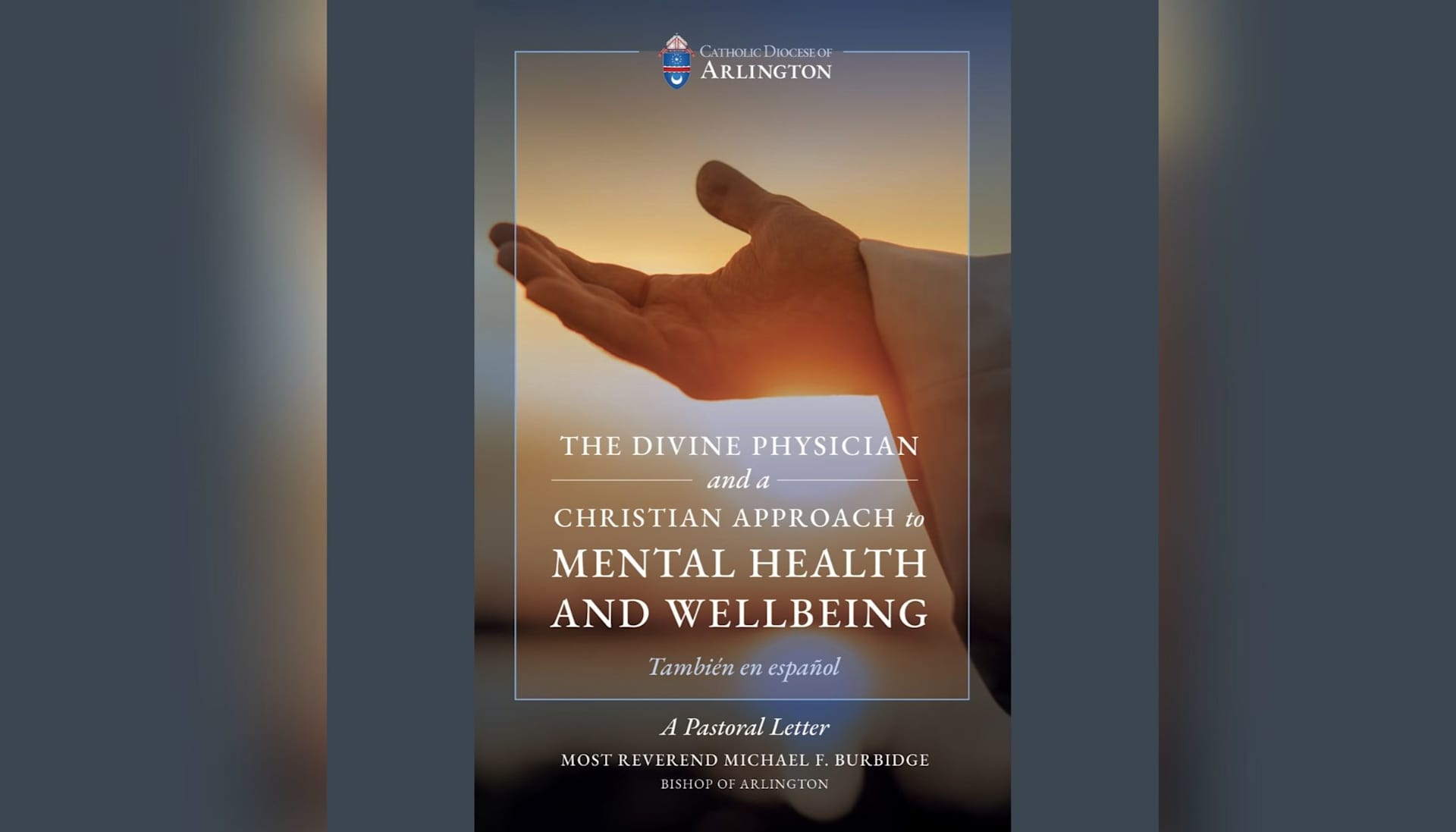
In a recent pastoral letter, Bishop Michael Burbidge addressed what he sees as a “crisis” in mental health among Catholics, especially the young, and seeks to remove stigma over seeking help.
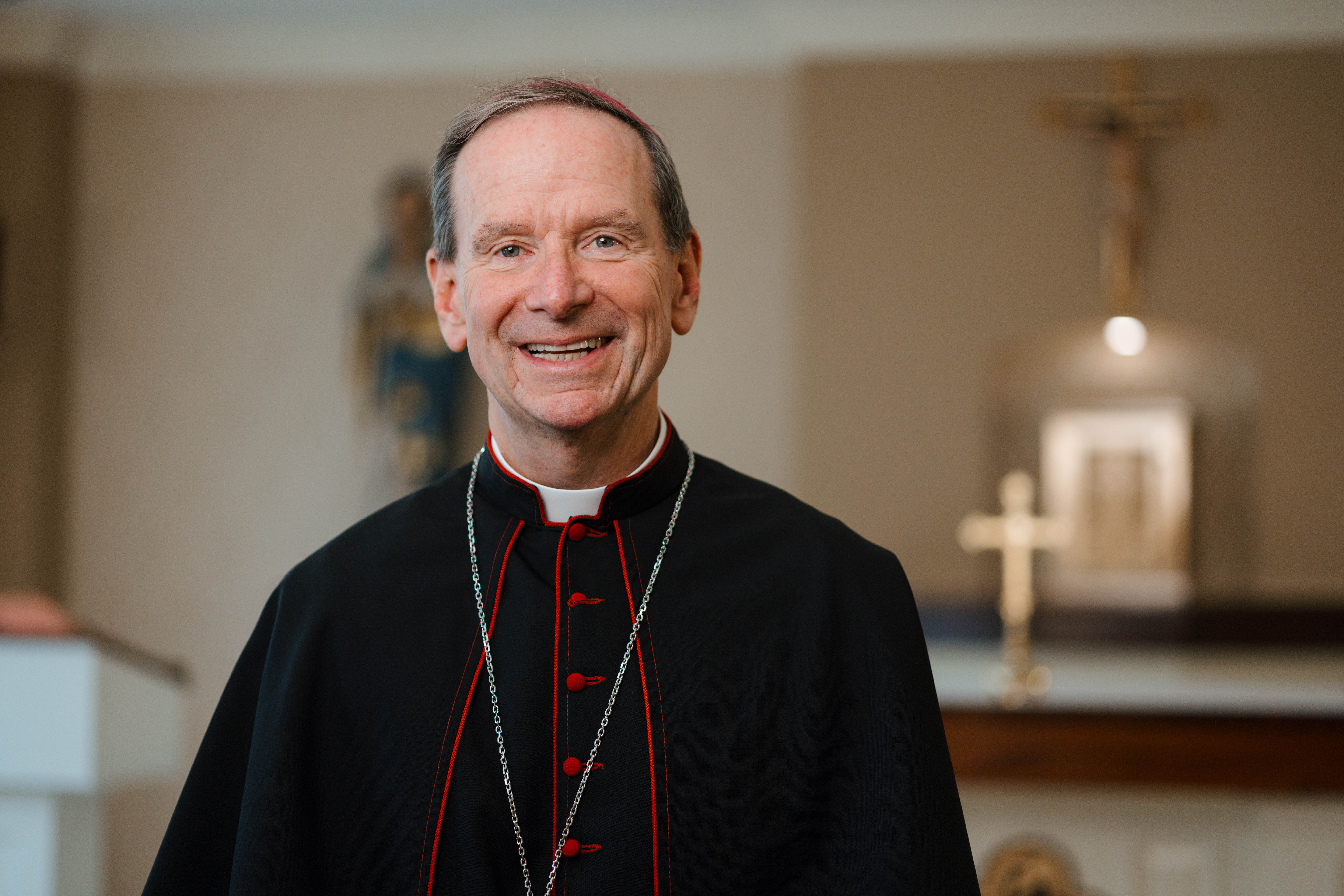
![Department of Justice investigates vandalism at California Catholic school #Catholic Federal officials are investigating after a Los Angeles-area Catholic school was targeted in a major act of vandalism that included the beheading of a statue of the Blessed Mother. Assistant Attorney General for Civil Rights Harmeet Dhillon said on X on Feb. 2 that the Department of Justice’s civil rights division “will open an investigation into [the] awful crime” against Holy Innocents Catholic School in Long Beach.TweetCyril Cruz, the principal of the school, told EWTN News that she came into the school early on the morning of Feb. 2 and discovered the vandalism in the hall where the school holds Mass. “Our statue of the Virgin Mary was smashed, and the tabernacle was removed and thrown to the floor in an apparent attempt to force it open,” she said. “The atrium lovingly prepared by the Carmelite Sisters for our scholars was completely destroyed.” “Audio equipment and lighting were ripped from the walls, speakers and instruments loaded onto carts, and the missals our students use daily were soaked and ruined.” Photos shared with EWTN News showed the vandalization in multiple rooms, including the destroyed statue, overturned shelves, scattered papers and Mass materials, and other scenes of destruction.
Destruction is seen at Holy Innocents Catholic School in Long Beach, California, Monday, Feb. 2, 2026. | Credit: Photo courtesy of Holy Innocents Catholic School
Cruz said Los Angeles Auxiliary Bishop Marc Trudeau was scheduled to hold a reparation Mass at the school on Feb. 3. The pastor of Holy Innocents Catholic Church and School, Father Peter Irving, was also scheduled to lead a Eucharistic procession around the school “as we entrust our community to Christ and respond with prayer, faith, and hope.”Irving told EWTN News that the community was “very sad,” though they were “very grateful” that the Blessed Sacrament was “not violated,” he said. “The tabernacle was not breached although it was left damaged,” he said. “Investigators said that this was the worst desecration that they have seen.”
Missals are tipped over and thrown around at Holy Innocents Catholic School in Long Beach, California, Monday, Feb. 2, 2026. | Credit: Photo courtesy of Holy Innocents Catholic School
The vandalism has received national media coverage. A GoFundMe campaign, meanwhile, had raised nearly $76,000 by the morning of Feb. 3. That campaign said Trudeau described the incident as “the worst case of vandalism that he’s ever seen in the region.”Still, Cruz said, amid the destruction, “our community came together — scholars, families, and Knights of Columbus — to clean, restore, and prepare the hall so that Mass could once again be celebrated.” “Yesterday, our school community gathered in prayer to pray the rosary for healing and also for the conversion and mercy for those who committed this act,” she added. “We are grateful no one was physically harmed, and we are responding as a faith community with prayer, reparation, and trust in Christ,” she said.](https://unitedyam.com/wp-content/uploads/2026/02/department-of-justice-investigates-vandalism-at-california-catholic-school-catholic-federal-officials-are-investigating-after-a-los-angeles-area-catholic-school-was-targeted-in-a-major-act-of-vandali.jpg)
The DOJ’s civil rights division will investigate the “awful crime” at Holy Innocents Catholic School.
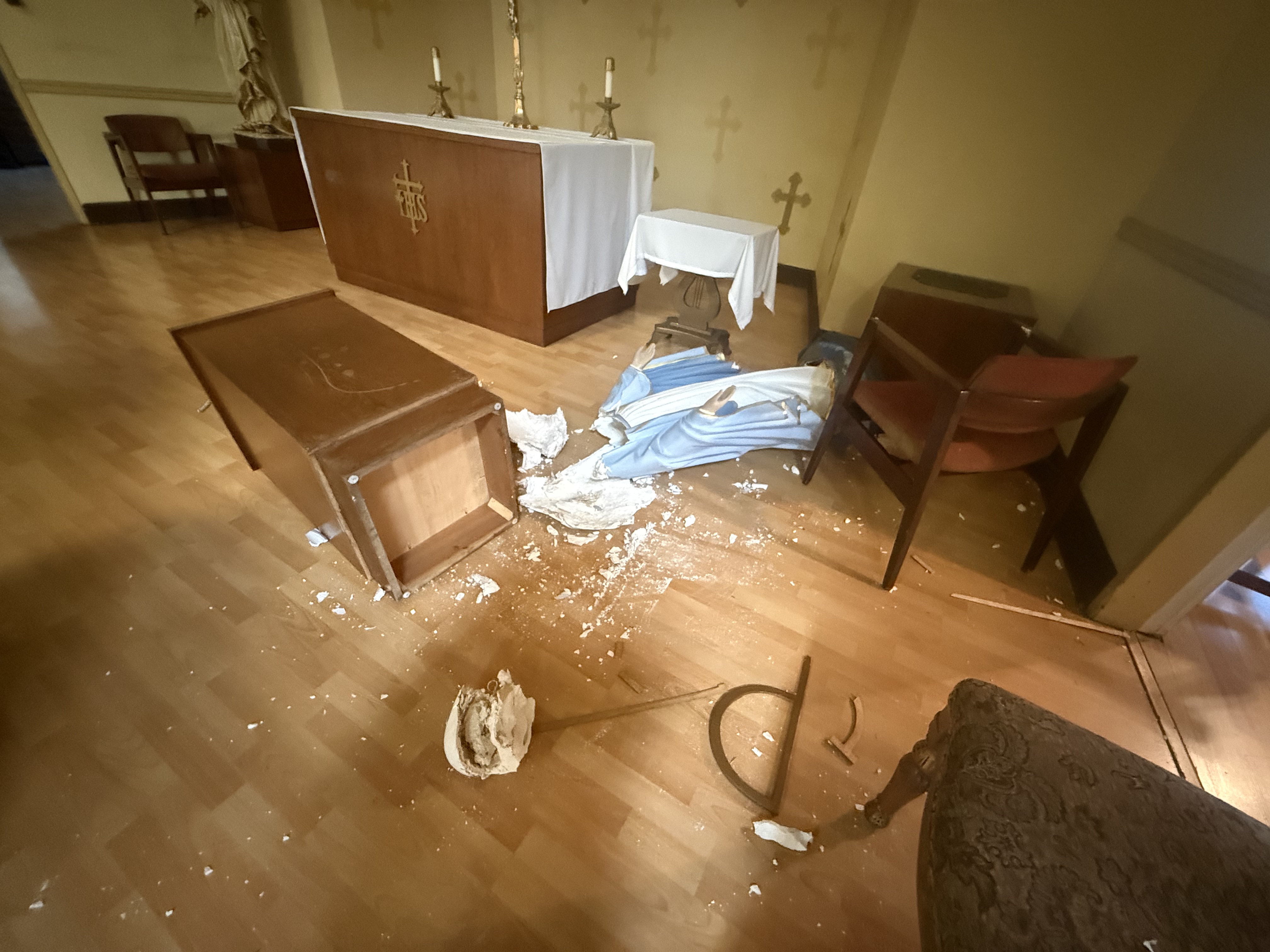
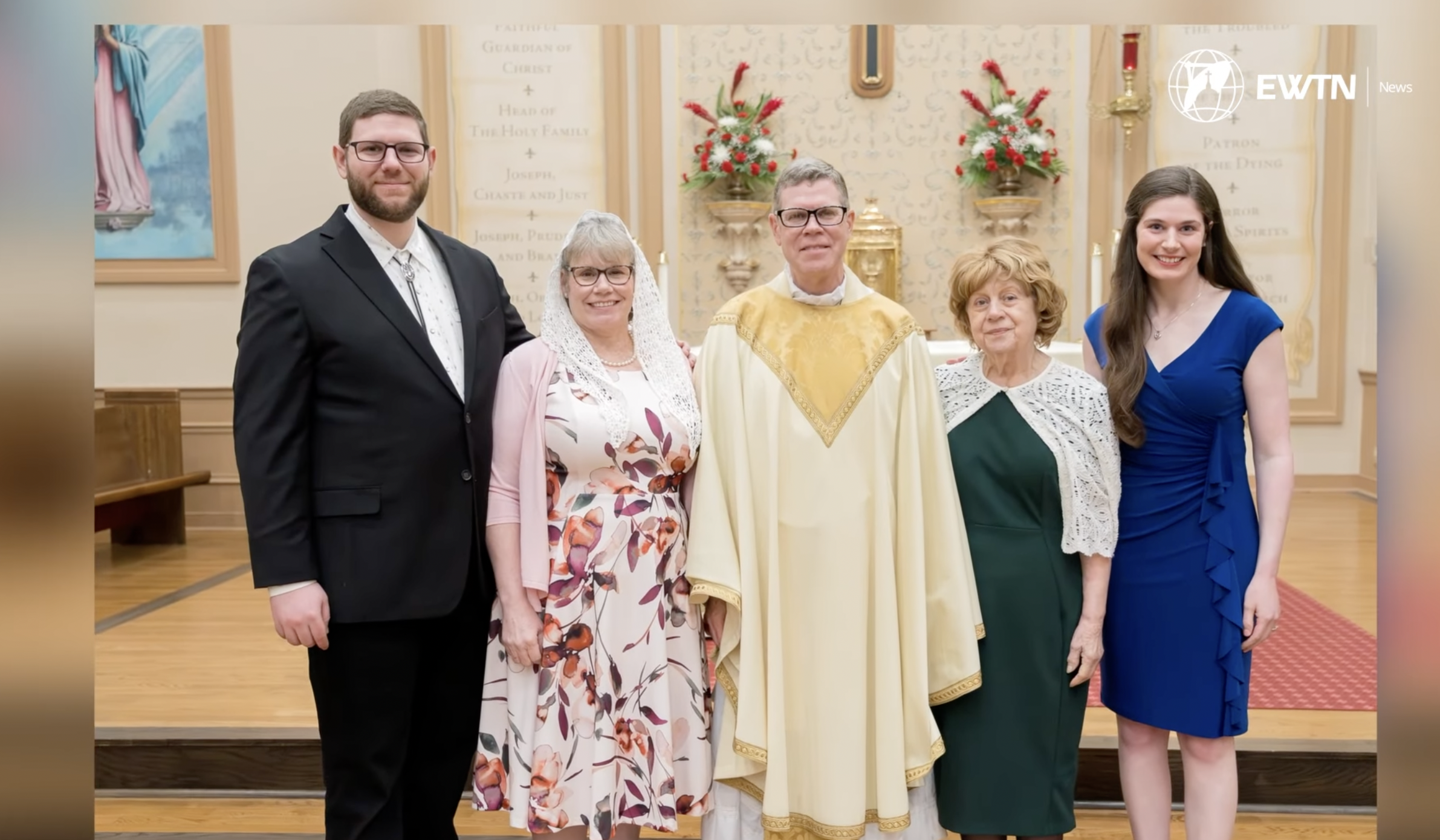

Jan 17, 2026 / 11:00 am (CNA).
Father Travis Moger has been a Catholic priest for just nine months, and his journey to ordination was a unique one. A former Baptist pastor and Navy chaplain, he was ordained in May 2025 in the Diocese of Wheeling-Charleston, West Virginia, seven years after he, his wife, and his son entered the Catholic Church.
“I didn’t come into the Church in order to be a priest; God used prayer to draw me to the Catholic Church,” Moger told EWTN News reporter Julia Convery.
During a military campaign as a Navy chaplain, Moger; his wife, Amelia; and his son, Mark, all separately began to feel the call toward Catholicism. While Moger was away, his wife had begun attending RCIA (Rite of Christian Initiation of Adults, which is now called OCIA — the Order of Christian Initiation of Adults).
Father Thomas Falkenthal, Moger’s former Navy chaplain supervisor, witnessed the seeds being planted in Moger’s heart.
“He was connecting with the liturgy. The Catholic Mass was certainly far from his tradition. I could tell it was touching him,” Falkenthal shared with Convery.
“He didn’t realize it, but all the way back home in the United States his wife, Amelia, was going to RCIA and preparing to join the Catholic Church. So when he came home from that deployment, they both had something to share with each other. Now I think that’s an amazing movement of the Spirit to keep that couple so close," Falkenthal said.
“It was definitely a God thing definitely to draw her towards the Catholic Church,” Moger added.
After a five-year journey of study and conversion, Moger, his wife, and his son were received into the Catholic Church on Easter Sunday 2018.
“I entered the Church not knowing if there would be a path to the priesthood for me,” Moger shared.
Bishop Mark Brennan of the Diocese of Wheeling-Charleston explained that Pope Francis eventually granted Moger a dispensation from the usual requirement of celibacy for the Catholic priesthood, allowing him to be ordained a priest.
The bishop also pointed out that he believes having a desire for a family is a trait that makes a good priest.
“When I was a vocations director, I always looked for would this man make a good husband and father? If he would, then he’d probably make a good priest,” Brennan said.
Moger also highlighted this trait as one that allows him to have a unique perspective into his now-spiritual fatherhood.
“There’s something about being able to bring a child into the world and then nurture them and you’re fully invested in another person. And I think that experience does inform the way you look at spiritual fatherhood and the way you look at God’s fatherhood,” Moger said.
Moger’s son, Mark, told EWTN News that his father’s newly found spiritual fatherhood has brought a “deeper spirituality” into their family.
Maddy Cordle, Moger’s daughter, added: “I’ve had the privilege of watching his conversion from the beginning — same with my mom and my brother —and I just got to watch how it brought them so much closer to each other in their marriage, together as a family, but also really, really strengthened their relationship with God.”
“To him there’s nothing more important than the impoverished and the cast aside. That’s his charism and you’ll see it throughout his ministry,” Mark added.
Despite his unconventional journey to the priesthood, Moger sees it as the result of saying “yes” to God.
“God honors it when we start moving in the direction that he’s leading us, trusting that he’s going to work it out,” he said.
Read More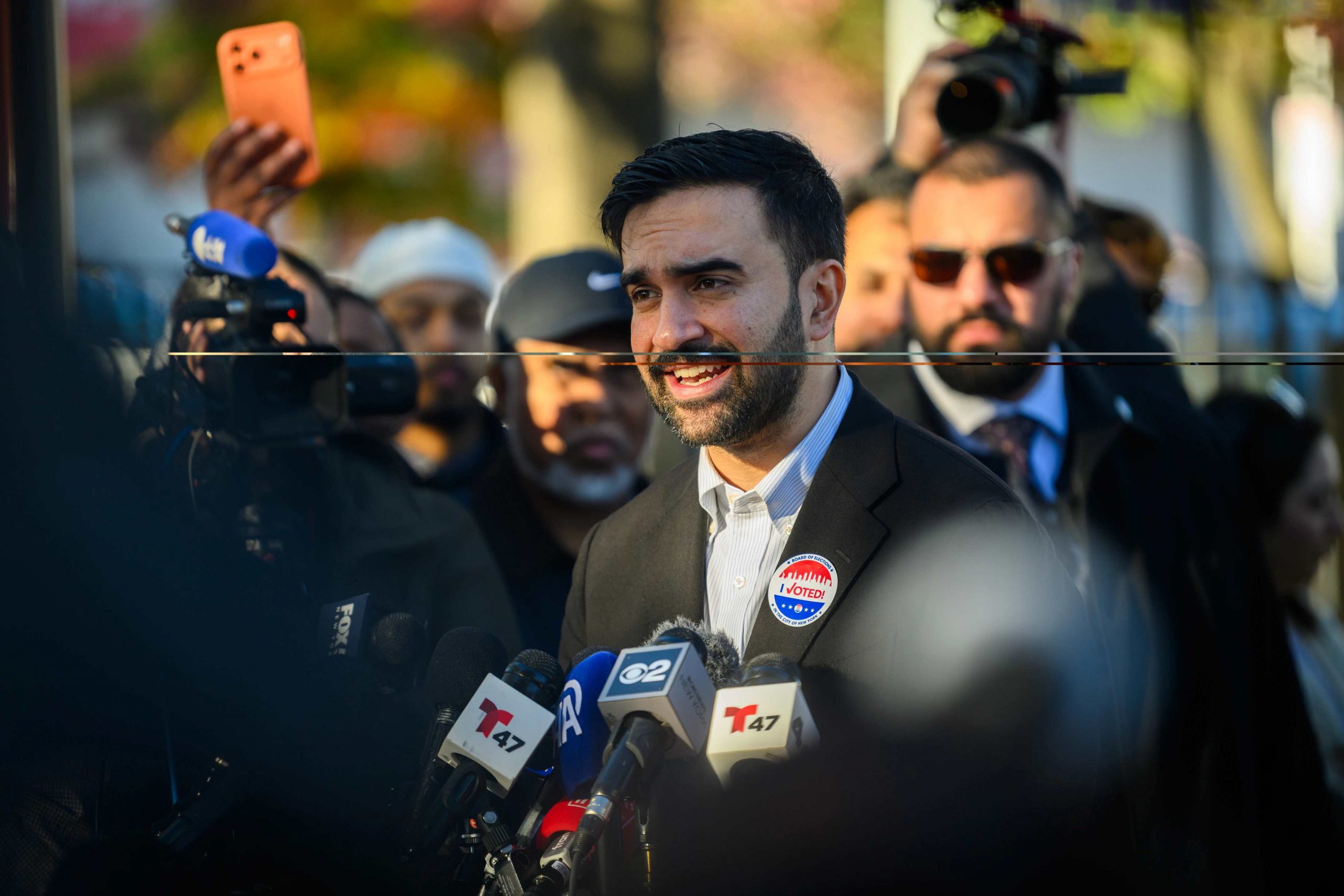

Jan 5, 2026 / 17:32 pm (CNA).
Bishop Robert Barron, founder of the Word on Fire ministry, criticized New York City Mayor Zohran Mamdani for promising constituents “the warmth of collectivism” in his Jan. 1 inaugural address.
Mamdani, who defeated two candidates with nearly 51% of the vote in the November election, won on a democratic socialist platform. His plans include free buses, city-owned grocery stores, no-cost child care, raising the minimum wage to $30 per hour, and freezing the rent for people in rent-stabilized apartments.
“We will replace the frigidity of rugged individualism with the warmth of collectivism,” Mamdani said in his inaugural address.
“If our campaign demonstrated that the people of New York yearn for solidarity, then let this government foster it,” he said. “Because no matter what you eat, what language you speak, how you pray, or where you come from — the words that most define us are the two we all share: New Yorkers.”
Barron, bishop of the Diocese of Winona-Rochester, Minnesota, said in a post on X that this line “took my breath away.”
“Collectivism in its various forms is responsible for the deaths of at least 100 million people in the last century,” Barron said.
“Socialist and communist forms of government around the world today — Venezuela, Cuba, North Korea, etc. — are disastrous,” he added. “Catholic social teaching has consistently condemned socialism and has embraced the market economy, which people like Mayor Mamdani caricature as ‘rugged individualism.’ In fact, it is the economic system that is based upon the rights, freedom, and dignity of the human person.”
“For God’s sake, spare me the ‘warmth of collectivism,’” Barron concluded.
Both socialism and communism have been condemned by many popes, first by Pope Pius IX in his 1849 encyclical Nostis et Nobiscum, just one year after Karl Marx published “ The Communist Manifesto.”
The foundation of Catholic social teaching rests on Pope Leo XIII’s 1891 encyclical Rerum Novarum.
In the encyclical, Leo denounced socialism and communism, and also condemned poor labor conditions for the working class and employers “who use human beings as mere instruments for moneymaking.”
“Each needs the other: Capital cannot do without labor, nor labor without capital,” the 19th century pontiff wrote. “Mutual agreement results in the beauty of good order, while perpetual conflict necessarily produces confusion and savage barbarity.”
Pope Pius XI, in his 1931 encyclical Quadragesimo Anno, wrote of the importance of private property, that man must be able to “fully cultivate and develop all his faculties unto the praise and glory of his Creator; and that by faithfully fulfilling the duties of his craft or other calling he may obtain for himself temporal and at the same time eternal happiness.”
Socialism, he said, is “wholly ignoring and indifferent to this sublime end of both man and society, affirms that human association has been instituted for the sake of material advantage alone.”
“Religious socialism, Christian socialism, are contradictory terms; no one can be at the same time a good Catholic and a true socialist,” Pius XI wrote.
Pope Benedict XVI differentiated socialism and democratic socialism. In 2006, he wrote: “In many respects, democratic socialism was and is close to Catholic social doctrine and has in any case made a remarkable contribution to the formation of a social consciousness.”
Though, in his 2005 encyclical Deus Caritas Est, Benedict XVI wrote that government should not control everything but that society needs a state that, “in accordance with the principle of subsidiarity, generously acknowledges and supports initiatives arising from the different social forces and combines spontaneity with closeness to those in need.”
Pope Francis has criticized Marxist ideology but also “radical individualism,” which he said in his 2020 encyclical Fratelli Tutti “makes us believe that everything consists in giving free rein to our own ambitions, as if by pursuing ever greater ambitions and creating safety nets we would somehow be serving the common good.”
In 2024, Francis encouraged cooperation and dialogue between Marxists and Christians.
The Catechism of the Catholic Church teaches: “The Church has rejected the totalitarian and atheistic ideologies associated in modem times with ‘communism’ or ‘socialism.’ She has likewise refused to accept, in the practice of ‘capitalism,’ individualism and the absolute primacy of the law of the marketplace over human labor.”
Read More

Researchers from NASA’s Jet Propulsion Laboratory in Southern California monitor a research drone in the Dumont Dunes area of the Mojave Desert in September 2025 as part of a test campaign to develop navigation software to guide future rotorcraft on Mars.
Read More

The four astronauts who will be the first to fly to the Moon under NASA’s Artemis campaign – NASA astronauts Reid Wiseman, Victor Glover, and Christina Koch, and CSA (Canadian Space Agency) astronaut Jeremy Hansen – have designed an emblem to represent their mission that references both their distant destination and the home they will return to.
Read More

Thomas Ozoroski, a researcher at NASA’s Glenn Research Center in Cleveland, takes icing accretion measurements in October 2024 as part of transonic truss-braced wing concept research. Researchers at NASA Glenn conducted another test campaign in March 2025.
Read More

Teams with NASA’s Exploration Ground Systems and primary contractor Amentum integrate the SLS (Space Launch System) Moon rocket with the solid rocket boosters onto mobile launcher 1 inside High Bay 3 of the Vehicle Assembly Building at NASA’s Kennedy Space Center on Sunday, March 23, 2025. Artemis II is the first crewed test flight under NASA’s Artemis campaign and is another step toward missions on the lunar surface and helping the agency prepare for future human missions to Mars.
Read More

NASA Artemis II Crew Public Affairs Officer Courtney Beasley, left, moderates a panel discussion with CSA (Canadian Space Agency) astronaut Jeremy Hansen, NASA astronauts Christina Koch, and Reid Wiseman, right, as they discuss their mission around the Moon next year aboard Artemis II, the first crewed test flight under NASA’s Artemis campaign, Friday, March 7, 2025, at SXSW in Austin, Texas.
Read More